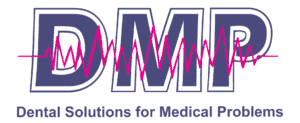American Thoracic Society
What kinds of cardiovascular problems can I get with obstructive sleep apnea?
Several cardiovascular conditions can happen with untreated obstructive sleep apnea. For example, if you have obstructive sleep apnea, you are more likely to have high blood pressure (hypertension) or it may be difficult to control your high blood pressure.
Of all people with hypertension, about 30% have obstructive sleep apnea. If you have obstructive sleep apnea, there is a 50% chance you also have hypertension. Problems with the rhythm of your heart may occur with OSA such as atrial fibrillation (a type of irregular heart beat) and bradycardia (slow heart rate).
People with severe obstructive sleep apnea are four times more likely to have atrial fibrillation compared to those without OSA.
Not receiving treatment for your sleep apnea may make your atrial fibrillation difficult to control. For example, in people who have atrial fibrillation treated with catheter ablation (a special procedure done to the heart), those with untreated obstructive sleep apnea are 25% more likely to have their atrial fibrillation return. People with obstructive sleep apnea are also more likely to have coronary artery disease.
Coronary artery disease (also known as the hardening of the arteries) happens when the small blood vessels that supply blood and oxygen to your heart become narrow. Narrowed coronary arteries can lead to heart attacks and heart damage.
If you have severe OSA that is untreated, you are twice as likely to develop a heart attack in the future as those without OSA.
In addition, research shows that up to 70% of people admitted to the hospital because of coronary artery disease were found to have obstructive sleep apnea. If you have heart failure, obstructive sleep apnea can also make it worse.
Also, people with untreated obstructive sleep apnea can develop heart failure. In addition, the chance of having obstructive sleep apnea if you have heart failure is quite high.
